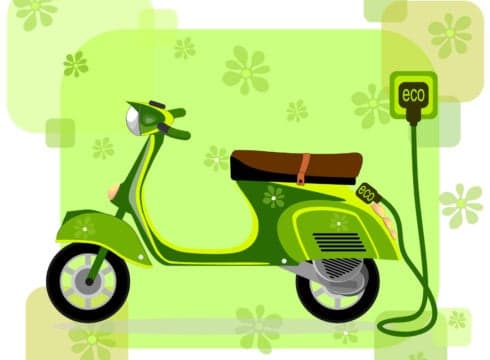TVS, Hero MotoCorp and Bajaj Auto have raised concerns about this transition
TVS MD Venu Srinivasan said that not including cars in EV transition, makes it incomplete
NITI Aayog had given two weeks to industry players to share EV transition roadmap
Inc42 Daily Brief
Stay Ahead With Daily News & Analysis on India’s Tech & Startup Economy
This month, NITI Aayog had proposed that only electric vehicles should be sold in India by 2030. For this, it called for full electric transition for three-wheelers by 2023 and two-wheelers with an engine capacity less than 150 CC by 2025.
However, this decision has caused a furore among leading auto industry players. A PTI report said that now leading two-wheeler makers— TVS, Hero MotoCorp and Bajaj Auto— have raised concerns on this transition.
They have reportedly argued that changing from conventional two-wheelers to 100% electric is “not like Aadhaar, not a software and print cards”. They have said that the concerns of all the stakeholders should be considered instead of imposing adoption of electric vehicles.
TVS Motor chairman and managing director Venu Srinivasan said that targeting “two- and three-wheelers but not cars makes it an incomplete initiative”.
NITI Aayog had advised that if industry players do not take steps to address pollution issues, the courts will step in. With 14 out of the 15 most-polluted cities being in India, the government is pushing for major action on this front.
Srinivasan emphasised that “changing to batteries running on thermal power will not reduce one iota of pollution”.
He claimed that at present, ”the two-wheeler contribute to 20% of automotive pollution”. Hero MotoCorp said it was “deeply concerned by the potential repercussions of NITI Aayog’s approach of completely banning two-wheelers up to 150cc that are powered by Internal Combustion Engines”.
Bajaj Auto managing director Rajiv Bajaj reportedly said that instead of imposing the adoption of EVs (electric vehicles), it would be ideal to have a healthy mix of policy, market dynamics, and customer acceptability. He said that 100% transition is completely uncalled for.
The development comes days after NITI Aayog asked two-wheeler and three-wheeler companies to come up with concrete steps towards the transition to electric mobility and gave them a two weeks notice to submit their plans.
India is steadily moving towards achieving its 2030 vision of 30% EVs, however, a few setbacks in the path are lack of proper infrastructure, lack of adequate technology and shortage of specialised human resource in the electric vehicle industry.
{{#name}}{{name}}{{/name}}{{^name}}-{{/name}}
{{#description}}{{description}}...{{/description}}{{^description}}-{{/description}}
Note: We at Inc42 take our ethics very seriously. More information about it can be found here.


